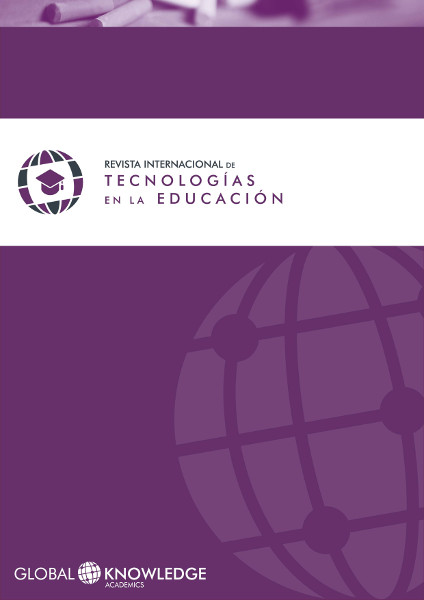Internet as a Platform for Teaching and Learning Music
DOI:
https://doi.org/10.37467/gka-revedutech.v4.69Keywords:
Online environment, Online media formats, Instrumental learning, Online musicAbstract
Currently, one of the least favored by the advent of online music technology areas has been the instrumental practice. Until a few years ago, playing an instrument has been synonymous with having a teacher next to a student in any school, conservatory and even in the classrooms of music schools, colleges, etc., which was vetoed instrumental study all one that could not have that presentiality teacher. In recent years have appeared online initiatives of various nature and origin, both institutional and individual, starting to encourage anyone to study instrument regardless of their geographic location, interests, or other circumstances, having only a good internet connection. Virtual conservatories, video platforms like YouTube or similar video podcasts, and more, have revolutionized the current outlook, favoring the teaching-learning instrumental in a natural way.
Global Statistics ℹ️
|
713
Views
|
854
Downloads
|
|
1567
Total
|
|
References
Classicalplanet.Com. (2015). MAGISTER. Recuperado de http://www.classicalplanet.com/magister
Comscore. (2011). Más de 19 millones de internautas españoles vieron los 3.000 millones de vídeos online en Marzo 2011. Retrieved 08/09/11, Recuperado de http://www.comscore.com/esl/Press_Events/Press_Releases/2011/5/Mas_de_19_millones_de_internautas_espanoles_vieron_los_3000_millones_de_videos_online_en_Marzo_2011
Contreras, A. (2012). Colisión de ideas: Indaba Music. Recuperado de http://www.aitorcontreras.com/colisionde-ideas-indaba-music/
Gilroy, M. (2010), Higher education migrates to YouTube and social networks, en Education Digest, 75, nº 7. DOI: https://doi.org/10.1111/j.2150-1092.2010.00017_43.x
Google. (2015). JAM Tecnología. Recuperado de http://www.jamwithchrome.com/technology
Krauskopf, K., Zahn, C. & Hesse, F. W. (2011). Leveraging the Affordances of YouTube: Pedagogical Knowledge and Mental Models of Technology Affordances as Predictors for Pre-Service Teachers’ Planning for Technology Integration. Paper presented at the Society for Information Technology & Teacher Education International Conference 2011, Nashville, Tennessee, USA. http://www.editlib.org/p/37018
Purcell, K. (2010). The State of Online Video. Recuperado de http://www.pewinternet.org/Reports/2010/Stateof-Online-Video.aspx [Último acceso 08/09/11].
Snelson, C. (2011). Teacher Video Production: Techniques for Educational YouTube Movies. Paper presented at the Society for Information Technology & Teacher Education International Conference 2011, Nashville, Tennessee, USA.
Www.Fundacionalbeniz.Com. (2011). Proyecto Atlántida. Red Iberoamerica de contenidos educativo-musicales online. Retrieved 07/09/2011, Recuperado de http://www.fundacionalbeniz.com/Documentos/MagisterMusicae_Atlantida.pdf
Zahn, C., Hesse, F., Finke, M., Pea, R., Mills, M. & Rosen, J. (2005). Advanced digital video technologies to support collaborative learning in school education and beyond. DOI: https://doi.org/10.3115/1149293.1149390
Zahn, C., Krauskopf, K., Hesse, F. & Pea, R. (2010), Digital Video Tools in the Classroom: How to Support Meaningful Colaboration and Critical Advanced Thinking of Students? En: M. Khine & I. Saleh (Eds.), New Science of Learning. Cognition, Computers and Collaboration in Educatoin. New York: Springer DOI: https://doi.org/10.1007/978-1-4419-5716-0_25
Zahn, C., Pea, R., Hesse, F. & Rosen, J. (2010), Comparing simple and advanced video tools as supports for complex collaborative design processes. Journal of the Learning Sciences, 19, 403-440., en Journal of the Learning Sciences, 19, nº. DOI: https://doi.org/10.1080/10508401003708399
Downloads
Published
How to Cite
Issue
Section
License
Those authors who publish in this journal accept the following terms:
- Authors will keep the moral right of the work and they will transfer the commercial rights.
- After 1 year from publication, the work shall thereafter be open access online on our website, but will retain copyright.
- In the event that the authors wish to assign an Creative Commons (CC) license, they may request it by writing to publishing@eagora.org







